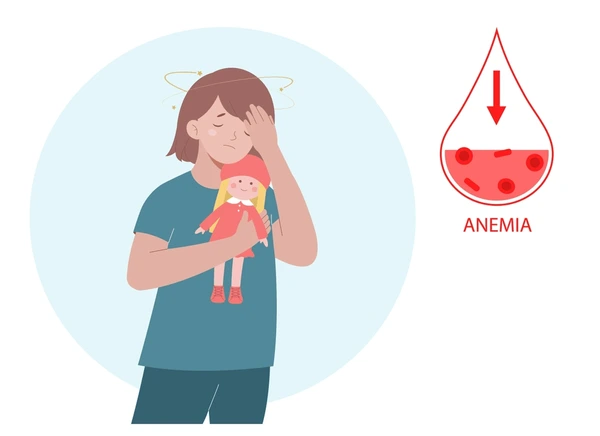Iron deficiency anemia is a common condition that occurs when your body lacks enough iron to produce hemoglobin, the substance in red blood cells that enables them to carry oxygen. It can leave you feeling tired, weak, and short of breath. Understanding its symptoms, causes, and treatment options is crucial for managing this condition effectively.
Symptoms of Iron Deficiency Anemia:
Iron deficiency anemia can manifest through various symptoms, including fatigue, weakness, pale skin, shortness of breath, dizziness or lightheadedness, cold hands and feet, brittle nails, and headaches. If you’re experiencing any of these symptoms, it’s important to consult with your healthcare provider for proper evaluation and diagnosis.
Causes of Iron Deficiency Anemia:
Several factors can contribute to iron deficiency anemia. These include inadequate iron intake, poor absorption of iron from the diet (such as in cases of celiac disease or gastric bypass surgery), blood loss due to menstruation or gastrointestinal bleeding, and pregnancy, which increases the body’s demand for iron. Certain conditions, such as inflammatory bowel disease or peptic ulcers, can also lead to iron deficiency anemia.
Diagnosis and Evaluation:
Diagnosing iron deficiency anemia typically involves a thorough medical history, physical examination, and blood tests to measure levels of hemoglobin, hematocrit, and serum ferritin. Additional tests may be conducted to identify the underlying cause of the deficiency, such as a fecal occult blood test or endoscopy.
Treatment Options:
Treatment for iron deficiency anemia aims to replenish iron stores in the body and address the underlying cause. This may involve dietary changes to include iron-rich foods such as lean meats, poultry, fish, beans, lentils, tofu, spinach, and fortified cereals. In some cases, iron supplements may be prescribed to meet the body’s increased iron needs. It’s essential to follow your healthcare provider’s recommendations regarding the dosage and duration of iron supplementation to avoid side effects.
Prevention Strategies:
Preventing iron deficiency anemia involves maintaining a balanced diet rich in iron and ensuring adequate absorption of this essential nutrient. Consuming vitamin C-rich foods alongside iron-rich foods can enhance iron absorption. For individuals at risk of iron deficiency, such as pregnant women or those with chronic medical conditions, regular monitoring of iron levels and prompt intervention are crucial.
Conclusion:
Iron deficiency anemia can significantly impact your quality of life if left untreated. By recognizing its symptoms, understanding its causes, and seeking appropriate medical care, you can effectively manage this condition and improve your overall health and well-being. If you suspect you may have iron deficiency anemia, don’t hesitate to consult with your healthcare provider for evaluation and guidance.
Source – mayo clinic



